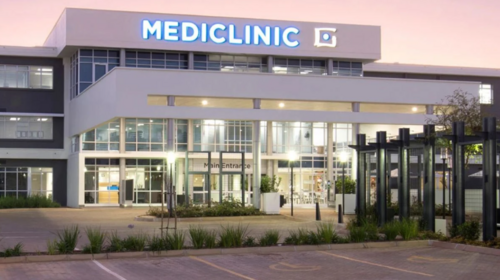Business
Remgro Freezes Hiring and Offers Early Retirements at Mediclinic to Boost AI Efficiency

Remgro has announced a strategic shift to increase efficiency at Mediclinic, its prominent private hospital group in South Africa. The company is implementing a hiring freeze and offering early retirement packages to certain employees as part of a broader effort to streamline operations and integrate artificial intelligence (AI) to reduce administrative costs.
The decision was confirmed during Remgro’s 2025 Capital Markets Day, with Mediclinic’s Chief Operating Officer, Bertrand Levrat, providing further insights into the company’s new direction. According to Levrat, the measures are aimed at cutting down on administrative costs within the group, while maintaining high-quality care for patients.
While the hiring freeze applies to corporate office personnel and shared services staff, it is important to note that frontline workers, including nurses and doctors, will not be impacted by this decision. Mediclinic emphasized that these steps are crucial to ensuring the sustainability and competitiveness of the company in a rapidly evolving healthcare landscape.
Aiming for R2 Billion in Savings by 2027
The restructuring initiative is expected to generate savings of up to R2 billion by 2027, a significant step in ensuring that Mediclinic remains cost-effective while enhancing its operational capabilities through AI. However, the company made it clear that no specific directive has been issued to replace full-time employees with AI technology, but rather to complement and optimize human resources.
“The transformation involves realigning our corporate office structures, which will reinforce our ability to support our healthcare facilities in delivering exceptional care to our patients,” Levrat explained. The move is designed to ensure that Mediclinic remains competitive, sustainable, and well-positioned to meet the needs of its patients, clients, and stakeholders.
Potential Impact on South Africa’s Job Market
While the decision to freeze hiring and offer early retirements might improve Mediclinic’s operational efficiency, it has the potential to exacerbate South Africa’s already high unemployment rate, which stood at 31.9% in the fourth quarter of 2024. The country’s youth are particularly vulnerable, with unemployment rates among individuals aged 15-24 reaching a staggering 59.6%, and those aged 25-34 facing a 39.4% unemployment rate.
These high levels of unemployment are already a point of concern for policymakers, and the introduction of AI-driven cost-cutting measures may lead to further job losses in an already challenging economic environment. Blade Nzimande, Minister of Science, Technology, and Innovation, recently addressed the dual impact of AI on South Africa’s economy. While acknowledging the potential of AI to drive economic growth, Nzimande highlighted the risks it poses to employment, particularly in a country struggling with high unemployment.
“There is a need for deliberate policy interventions to ensure that technological advancements serve social justice, inclusivity, and equality,” Nzimande emphasized. His comments underline the growing debate over AI’s role in the workplace, and the need for a balanced approach that maximizes the benefits of technology while protecting vulnerable workers.
A Critical Shift in the South African Healthcare Industry
Mediclinic’s decision to embrace AI as a means of increasing efficiency reflects broader trends in the healthcare sector, where companies are increasingly turning to technology to manage costs and improve service delivery. AI has the potential to revolutionize healthcare by streamlining administrative tasks, improving patient outcomes, and increasing operational efficiency.
However, as with any technological shift, the move towards automation and AI raises important questions about the future of employment. As South Africa grapples with both high unemployment and technological advancement, the challenge will be to strike a balance between adopting new technologies and protecting workers from potential displacement.
Remgro’s strategic restructuring at Mediclinic highlights the growing role of AI in business operations, even within sensitive sectors like healthcare. While the company is optimistic about the potential savings and increased efficiency, it must navigate the complex realities of South Africa’s job market. The ongoing conversation around AI, job displacement, and economic sustainability will continue to shape the future of both the healthcare industry and South Africa’s workforce.
As the country moves forward, the integration of AI into businesses like Mediclinic will require thoughtful policies that not only harness the benefits of technology but also safeguard jobs and promote inclusive growth for all South Africans.
{Source: IOL}
Follow Joburg ETC on Facebook, Twitter , TikTok and Instagram
For more News in Johannesburg, visit joburgetc.com

























